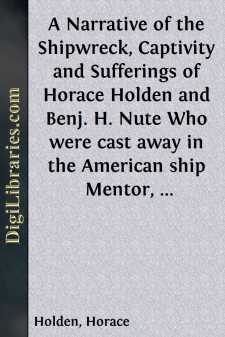Categories
- Antiques & Collectibles 13
- Architecture 36
- Art 48
- Bibles 22
- Biography & Autobiography 815
- Body, Mind & Spirit 144
- Business & Economics 28
- Children's Books 18
- Children's Fiction 14
- Computers 4
- Cooking 94
- Crafts & Hobbies 4
- Drama 346
- Education 58
- Family & Relationships 59
- Fiction 11834
- Games 19
- Gardening 17
- Health & Fitness 34
- History 1378
- House & Home 1
- Humor 147
- Juvenile Fiction 1873
- Juvenile Nonfiction 202
- Language Arts & Disciplines 89
- Law 16
- Literary Collections 686
- Literary Criticism 179
- Mathematics 13
- Medical 41
- Music 40
- Nature 179
- Non-Classifiable 1768
- Performing Arts 7
- Periodicals 1453
- Philosophy 65
- Photography 2
- Poetry 896
- Political Science 203
- Psychology 44
- Reference 154
- Religion 515
- Science 126
- Self-Help 85
- Social Science 82
- Sports & Recreation 34
- Study Aids 3
- Technology & Engineering 59
- Transportation 23
- Travel 463
- True Crime 29
Our website is made possible by displaying online advertisements to our visitors.
Please consider supporting us by disabling your ad blocker.
A Narrative of the Shipwreck, Captivity and Sufferings of Horace Holden and Benj. H. Nute Who were cast away in the American ship Mentor, on the Pelew Islands, in the year 1832; and for two years afterwards were subjected to unheard of sufferings...
by: Horace Holden
Description:
Excerpt
CHAPTER I.
Equipment and departure of the ship Mentor from the port of New Bedford, Massachusetts.—The ship's company.—Arrival at Fayal.—Passage down the Cape de Verd islands, and round the cape of Good Hope, to the Indian ocean.—Cruising among the islands, and arrival at the port of Coupang, in Timor.—A violent storm.—The ship strikes on a coral reef off the Pelew islands.—Alarm and distressing situation of the ship's company, and sudden loss of eleven of their number.—The survivors preserved upon a dry part of the reef.
I was born in the town of Hillsborough, in the state of New Hampshire, on the 21st of July, 1810. My father's name was Phineas Holden. My parents were in moderate circumstances, and derived their chief support from a small farm. From the time to which my earliest recollections extend, until I was about ten years of age, our little circle, consisting of our parents, their three sons and two daughters, enjoyed a large share of the pleasures of a New England home. We were all accustomed to labor, but our exertions to secure a respectable maintenance were richly rewarded by each other's approving smiles, and by that contentment, without which blessings, however great or numerous, are bestowed upon us in vain.
But, in early life, and in the midst of our enjoyments, we were called upon to experience a loss which nothing on earth can supply. My father, after a painful sickness of long continuance, died, and left us with no other earthly protector than our affectionate mother; who, had her ability and means been adequate to our support, or equal to her maternal fondness and anxiety, would have saved us from every hardship, and supplied all our reasonable desires. But, having no means of support except our own industry, we were at that tender age thrown upon the world, and compelled to provide for ourselves as Providence might best enable us. I labored at different occupations until the age of twenty-one; when, finding myself unable, by reason of an impaired constitution, to do more than provide for myself, and feeling desirous to contribute my share towards the maintenance of our surviving parent, I resolved upon making the experiment of a voyage at sea.
I accordingly left the place of my nativity, sundered the many ties that bound me to home and friends, and, in July, 1831, entered on board the ship Mentor, at the port of New Bedford, Massachusetts, for a whaling voyage to the Indian ocean. The ship was owned by William R. Rodman, Esquire, an eminent merchant of that place, to whose benevolence, since my return home, I acknowledge myself to be deeply indebted. We sailed on the day of my enlistment; and I soon found myself upon the bosom of the great deep, and at the mercy of an element to which I had been but little accustomed.
The whole ship's company of the Mentor consisted of twenty-two; namely, Edward C. Barnard, captain; Thomas M. Colesworthy, first mate; Peter O'Connor, second mate; Benjamin F. Haskell, David Jenkins, and Jacob Fisher, boat-steerers; Peter Andrews, steward; John Mayo, cook; and Horatio Davis, Bartlet Rollins, William Jones, Thomas Taylor, Lewis Bergoin, Charles C. Bouket, Calvin Alden, Milton Hulet, William Sedon, James Meder, James Blackmore, John Baily, Benjamin H. Nute, (my companion in suffering,) and myself, seamen.
After leaving port, nothing remarkable occurred during the first part of our voyage. Having succeeded in obtaining a small quantity of oil, we touched at Fayal, one of the Azores, or Western islands, to leave the oil and replenish our stores. We left Fayal on the following day. Our course was down the Cape de Verd islands; and, without any accident worth relating, we passed round the cape of Good Hope, through the straits of Madagascar, and found ourselves in the Indian ocean.
We continued to cruise among the small islands for some time; but being unsuccessful in the object of our voyage, it was deemed advisable to make for Java....


